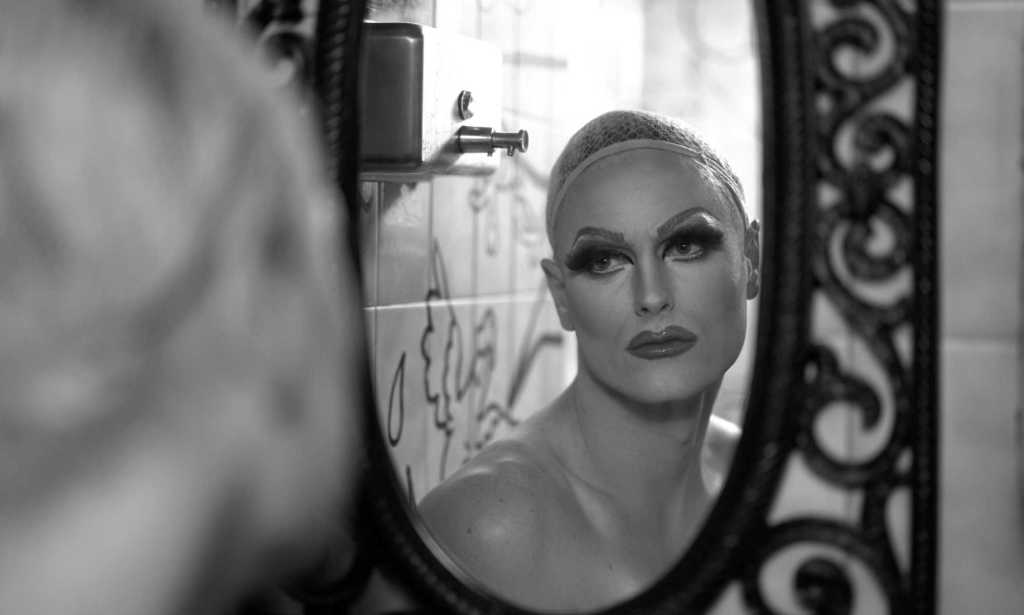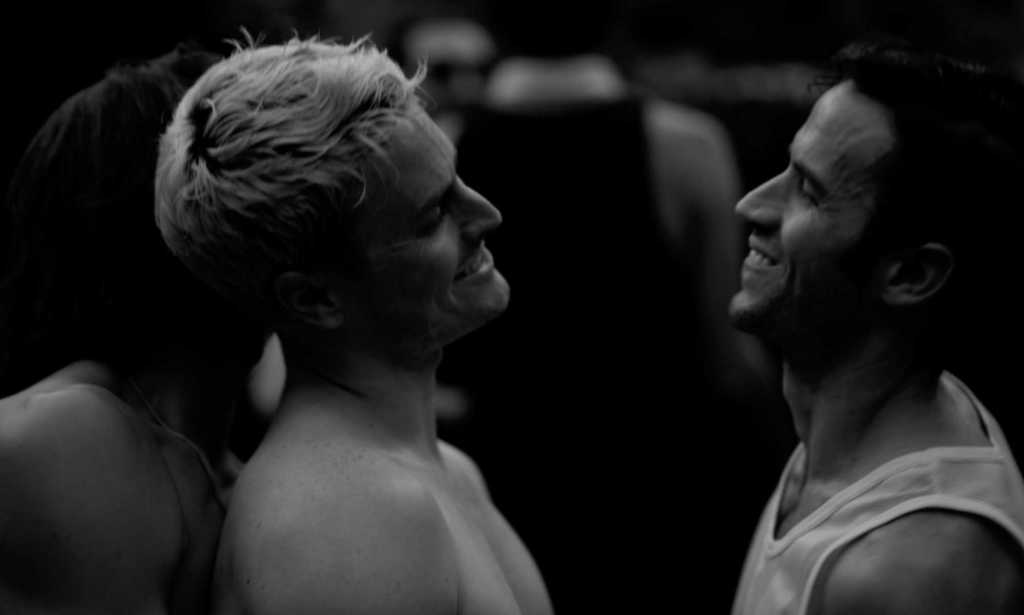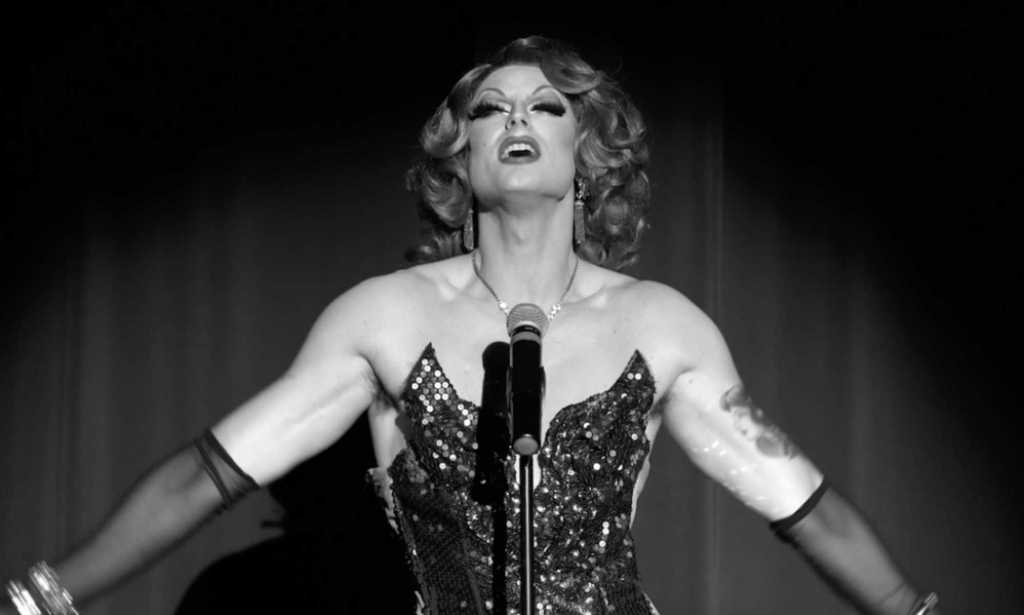Chrissy Judy: A heartfelt portrait of an old-school drag duo facing a friendship breakup

Todd Flaherty tells PinkNews about the importance of chosen family, queer friendships and drag.(Chrissy Judy)
Chrissy Judy director, writer and star Todd Flaherty explains the importance of chosen family, the dangers that come with banning drag and why queer friendships allow for “more authentic” living.
If Todd Flaherty’s new film Chrissy Judy came with a mission statement, it would undoubtedly come down to the significance of queer friendship.
“Culturally, we value a romantic partner over friendships,” Todd Flaherty tells PinkNews. “When, actually, friendships are just as, if not more, important.”
The film, which premiered at the Provincetown International Film Festival, and lands at the BFI Flare Festival this weekend (19/20 March), centres on Judy and his long time creative partner and best friend Chrissy (Wyatt Fenner). Addressing the temptation to fit into a heteronormative structure of life as opposed to the polygamy of modern gay relationships and the struggle of being a queer artist, the film interrogates the visceral pain of a ‘breakup’ with someone other than a romantic partner.
When Chrissy decides moves to suburban Philadelphia with new boyfriend Shawn (Kiyon Spencer) to live their married couple fantasy, Judy, a struggling drag queen, faces both professional uncertainty and a loss of personal identity.
The film isn’t biographical, but rather is “informed by a couple really formative relationships that I had in my 20s”, Flaherty explains, who asserts that every gay man will have “that one friend” that immediately springs to mind upon watching Chrissy Judy.
“I love queer cinema,” says the director when asked about the nature of queer friendship. In his experience, every queer film he’s seen are either features “coming out stories, stories of unrequited love, or [stories about] our victimhood, the AIDS pandemic“.

While he acknowledges the importance of these films – “those are all incredibly valid, and it’s amazing to see how many new ways we can tell those stories” – Chrissy Judy was born from his own desire to explore something rarely addressed in cinema.
“I had never seen anything about chosen family and queer friendship,” he explains. “I know how impactful some of those relationships had been in my growth as a human, and I wanted to explore the pain of losing someone who is not a romantic partner.”
It won’t come as a surprise to queer viewers to learn that a big reason influencing Chrissy and Judy’s is buried in decades of queer angst: should we want to be like our heterosexual counterparts? Should we want to mimic their lives, jobs and familial structures?
Chrissy’s move to Philadelphia is Flaherty’s way of showing that some queer men want to explore a “heteronormative relationship” – and moreover, is a way of validating that desire. “I get to have that,” he explains, “and I should be allowed to relish that”.
On the other hand, Judy “doesn’t want to let go of this incredible, unique lifestyle that everyone doesn’t get to have”.
A large part of Chrissy Judy takes place in Flaherty’s home of Provincetown; a “gay enclave” on the northern tip of Cape Cod, Massachusetts, which informs the film’s exploration of chosen family.
“When you live in a space where everyone else is queer, you no longer identify yourself as ‘other,'” he explains.
“And so you get to say: ‘If I’m not the thing that everyone has placed on me, which is my sexuality, who am I authentically?'”

Chosen family is also a topic that’s close to Flaherty’s heart. When Judy loses his best friend and integral part of his inner circle, he’s sent into a “tailspin”.
“When we’re with our families, we are the version of ourselves that they want us to be. And then we have a version of ourselves who we are with our chosen family, who for me feels more authentic, and it feels like more myself.”
Chrissy Judy is made all the richer for its subplot of Judy’s struggles as an old school drag queen – and Flaherty knows from first hand experience that “to make queer art for queer people, is really hard to do.”
Drag, which Flaherty calls “the queerest art form”, also allowed him to delve deep into character development. Judy, he explains, “feels her most authentic self behind makeup and under all of these jewels and hair. She’s exploring her most authentic self behind that mask.”
It’s the art of drag that really saves Judy in the film, as she falls back in love with performing and finds herself in isolation.

It’s impossible to talk about drag without also referencing the current political climate surrounding the art form. Reassuringly, Flaherty’s not worried, calling the divisive rhetoric “a very old thing that happens in political parties when they’re losing power”.
“I have faith that drag will continue on, because it has been for literally centuries, something that has been going on for longer than what the art form has evolved into.”
As for what does Flaherty wants people to take away from Chrissy Judy, the director is hopeful that audiences will give themselves “a little reprieve from feeling any sort of regret” about friendships that might not have lasted or ended the way they hoped they did.
“The point of these friendships isn’t that they last forever, it’s that they carry us through a moment in our lives when we need them most. And though it’s painful, sometimes you have to say goodbye to those things.”
Chrissy Judy appears alongside documentary The Dads at the BFI Flare festival on Sunday (19 March) and Monday (20 March). Tickets are available now.

